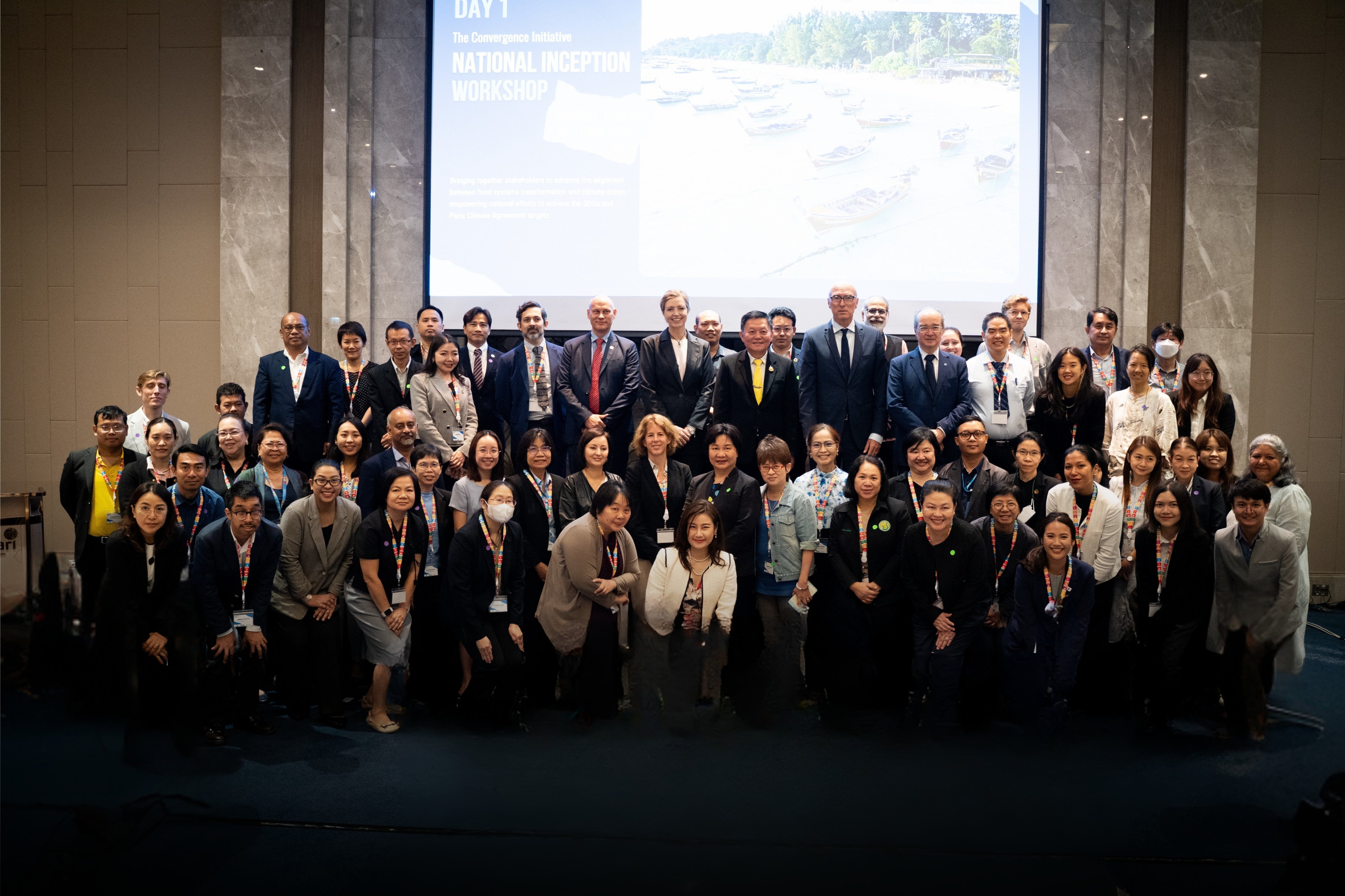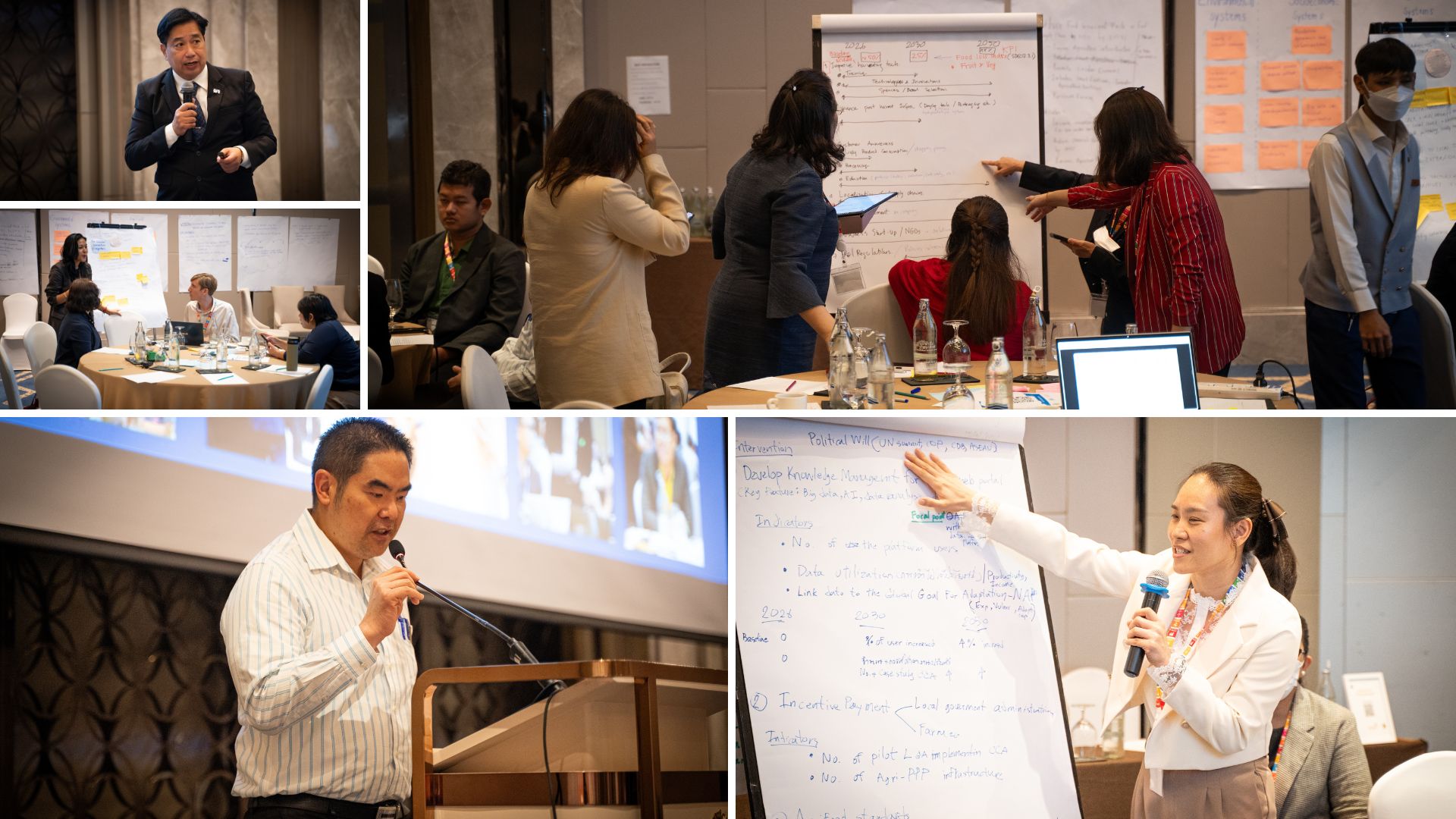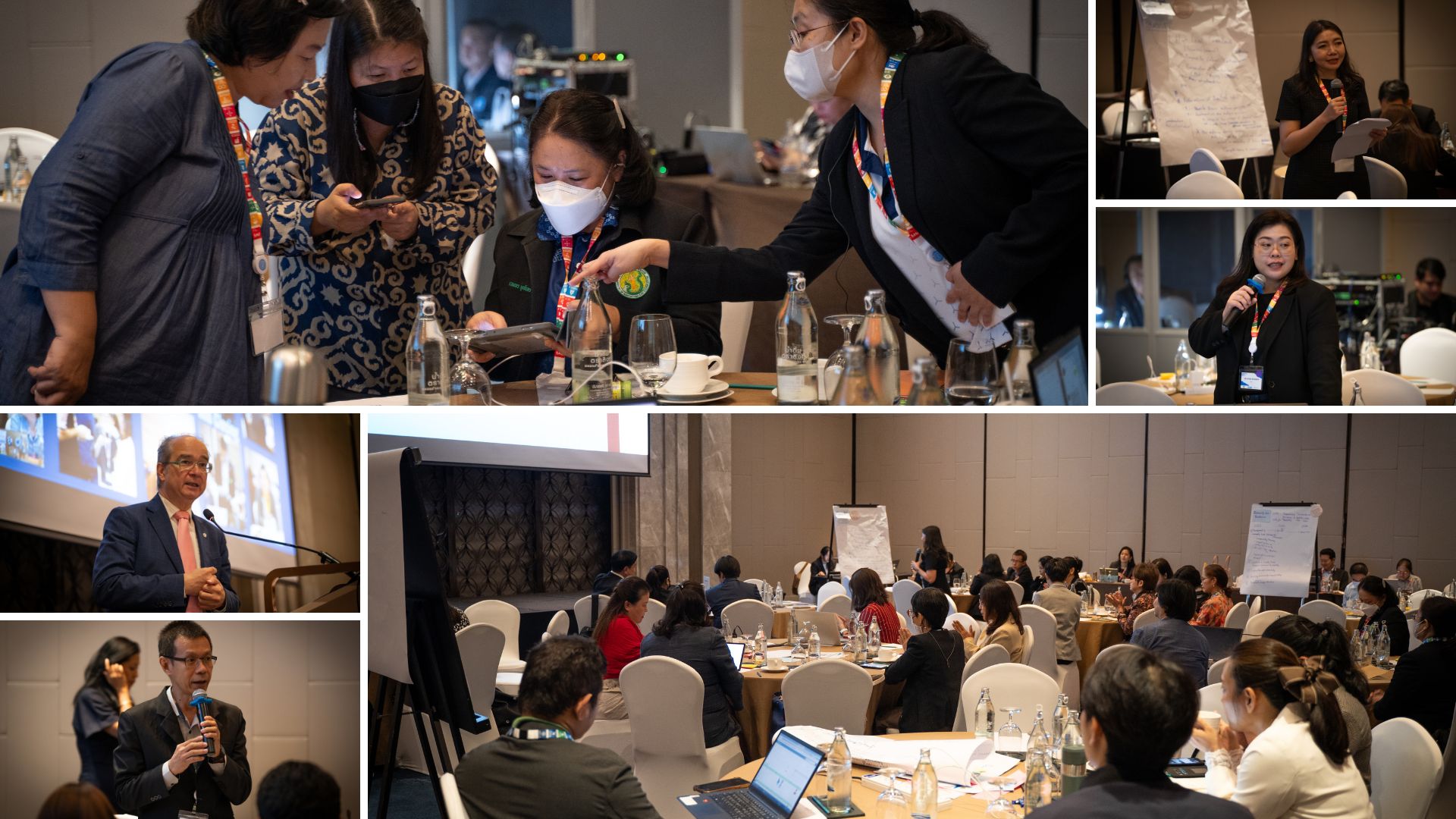Thailand joins global push for integrated food and climate solutions with launch of Convergence Initiative

©UN Food Systems Coordination Hub/ Raiwin Wantaveesub
Thailand has taken a major step forward in aligning its food systems transformation with climate action through the National Convergence Inception Workshop, held from 19–21 May 2025 in Bangkok. The workshop brought together representatives from government ministries, UN agencies, civil society, research institutions and the private sector to launch the Convergence Initiative—a global effort to drive coherence across food, climate and development agendas.
Thailand is the 8th country globally and the 2nd in the Asia-Pacific region to embark on this initiative, supported by the Government of the Netherlands. The initiative supports countries in crafting integrated approaches to address the interlinked challenges of food insecurity, climate vulnerability and environmental degradation. While the country is a leader in agricultural production, it faces pressing challenges: six million people are experiencing food insecurity, agriculture contributes 18 percent of national greenhouse gas emissions and Bangkok alone generates over 4,500 tons of food waste monthly.
“Our food systems are increasingly under pressure from cascading crises,” said Robert Simpson, Deputy Regional Representative, FAO. “We all have a joint responsibility to ensure that food systems transformation succeeds, touching every aspect of how we produce and consume food.”

Need for convergence in Thailand
Thailand is highly impacted by climate change, both in terms of changing climatic trends, as well as more frequent and intense extreme climate events such as floods, droughts and high temperatures. The country has been ranked 30th out of 174 countries for its long-term climate risk by the Germanwatch Global Climate Risk Index (CRI) 20251 – an improvement from its previous position of 9th for the period 1993-2021 – . According to its second updated nationally determined contribution (NDC), Thailand set a target to reduce GHG by 30% (unconditional target) and 40% (conditional target) by 2030 compared to the business-as-usual scenario from the reference year 2005 in the absence of significant climate change policies. Twenty million people, (42 percent of the Thai labour force) are employed in agriculture and approximately 40-50 percent of Thailand's total land area is used for agriculture.
The climate shocks significantly impact agricultural productivity and vulnerable groups, particularly smallholder farmers. The Office of Agricultural Economics (OAE) has reported increased spending on agricultural disaster relief funds between 2008 and 2021, from approximately 8,182 million baht per year to 33,764 million baht.
From Thailand’s leadership, Taworn Thunjai, Deputy Permanent Secretary of the Ministry of Agriculture and Cooperatives and National Convenor, affirmed the country’s commitment: “Thailand is committed to integrating climate-smart, people-centered and nature-positive food systems into national policies and strategies. This initiative is a key opportunity to drive multi-stakeholder collaboration.”
“From the many countries we work with, one lesson stands out: country ownership is the foundation of meaningful and lasting transformation,” said Stefanos Fotiou, Director of the UN Food Systems Coordination Hub. “No single actor can do this alone – the Convergence Initiative brings a One UN approach and National Conveners foster multisector coherence to drive food systems transformation.”

Convergence Initiative Workshop in Thailand
The two-and-a-half-day workshop brought together 70 participants across various national Ministries, civil society organizations, academia, UN agencies, farmers groups and banks etc., to review national needs and agree on the means of enhancing capacities to develop synergetic action for food systems transformation and climate action, through the co-design of a Convergence Action Blueprint. The workshop emphasized the need for an integrated national vision that can inform ongoing policy processes, which is timely as Thailand prepares for its 14th National Development Plan.
“This National Inception Workshop plays such an important and timely role to help us develop a blueprint for change,” noted Michaela Friberg-Storey, UN Resident Coordinator in Thailand. “Hand in hand, between Thailand and the United Nations, we must address these challenges together.”
The workshop served as a platform to reflect on shared global and regional pressures, from climate shocks and pandemics to food insecurity and resource degradation.
Highlighting the importance of resilient and profitable food production, H.E. Remco van Wijngaarden, Ambassador of the Kingdom of the Netherlands, emphasized the potential for deeper cooperation between Thailand and its partners: “Like my country, Thailand’s food systems face the challenges of climate change. We must work together to develop solutions that are not only sustainable but mutually beneficial.”
Throughout the three-day workshop, participants co-developed the Convergence Action Blueprint for Thailand, identifying five national convergence areas:
- Community-Led Resilience
- Food Loss and Waste Reduction
- Climate-Smart Agricultural Systems
- Inclusive Food Systems Governance
- Bio-Circular-Green (BCG) Innovation Ecosystem for Agrifood Systems
Next steps for implementation
Following the workshop, Draft 1 of the Convergence Action Blueprint will be submitted to the National Convener, the Deputy Permanent Secretary of the Ministry of Agriculture and Cooperatives (MOAC), to guide the execution of coordinated interventions with relevant stakeholders involved in food systems transformation and climate action. The upcoming climate finance workshop in August, organized under the GCF Readiness project, will provide a strategic platform to strengthen investment planning and mobilize resources to support implementation efforts. This process is expected to inform action not only at the national level but also contribute to shaping regional cooperation and dialogues.
Furthermore, milestone events such as Thailand’s pre-COP30 dialogue, the UNFSS+4 Stocktaking Moment, and the development of the ASEAN Vision for Agrifood Systems offer key opportunities for the National Convener to align Thailand’s food systems agenda with national climate strategies, regional frameworks, and global commitments—thereby reinforcing coherence and impact across all levels.
